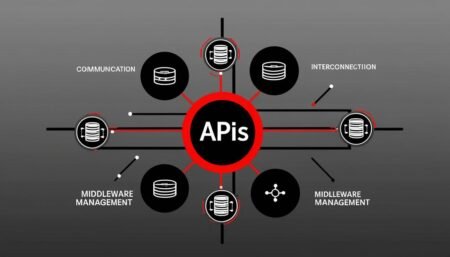Meta’s annual developer conference reveals new AI features aimed at enhancing user experience, but raises concerns about data privacy and usage.
Meta Unveils AI-Powered Features at Annual Developer Conference
SAN FRANCISCO, USA — Meta held its annual developer conference, showcasing a significant shift towards artificial intelligence (AI) innovations. This year, the tech giant introduced an array of new features, echoing similar advancements from companies like Google.
Among the announced features are enhanced voice recognition, advanced photo scanning, and real-time translation services. These tools aim to improve user experience by leveraging AI capabilities to streamline and optimise everyday tasks.
However, these advancements bring forward similar concerns about privacy and data usage that have been associated with other tech giants such as Google. Utilising these tools will require users to agree to terms of service, which often involve extensive data collection and usage permissions.
During the conference, company representatives highlighted the potential benefits of these AI-powered features for consumers, noting how they can simplify complex activities and improve connectivity. Nonetheless, the underlying concern remains how user data is managed and utilised by Meta.
Long-time observers of the tech landscape remain sceptical about the intention behind these features. Companies like Amazon, Google, Apple, and OpenAI have faced criticism for their data collection practices, which are often justified by the services they offer in return. However, the balance between service utility and data privacy continues to be a contentious issue.
Users are advised to thoroughly review the terms and conditions associated with these new features. It’s imperative to understand the extent of data collection and the purposes for which it will be used. Meta’s policies have historically been criticised for being complex and sometimes difficult to interpret, a practice that stands in contrast to companies like Google and Apple, which have made strides towards more transparent and comprehensible policy documentation.
Seasoned Meta users, particularly those of Facebook, may recall instances where updates have reset privacy settings, requiring a meticulous review by users to restore their preferred configurations. This has led to concerns about the ease with which users might unwittingly consent to broad data-sharing terms.
While Meta’s AI features promise to deliver high functionality, the onus remains on the users to scrutinise the fine print and make informed decisions about their data privacy. The debate on the trade-off between convenient, advanced tech features and personal data security continues as Meta embarks on this new chapter of AI-driven tools.
Meta’s developer conference thus underscores a broader industry trend, reflecting tech companies’ relentless pursuit of AI enhancements amidst ongoing privacy and data usage discussions. As these services become more integrated into daily life, the conversation around ethical data practices will undoubtedly persist.
Source: Noah Wire Services
















